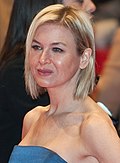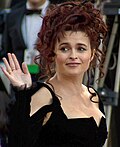| BAFTA Award for Best Supporting Actress | |
|---|---|
 The 2024 recipient: Zoe Saldaña | |
| Awarded for | Best Performance by an Actress in a Supporting Role |
| Location | United Kingdom |
| Presented by | British Academy of Film and Television Arts |
| Currently held by | Zoe Saldaña for Emilia Pérez (2024) |
| Website | http://www.bafta.org/ |
Best Actress in a Supporting Role is a British Academy Film Award presented annually by the British Academy of Film and Television Arts (BAFTA) to recognize an actress who has delivered an outstanding supporting performance in a film.
Contents
- History
- Winners and nominees
- 1960s
- 1970s
- 1980s
- 1990s
- 2000s
- 2010s
- 2020s
- Superlatives
- Multiple nominations
- Multiple wins
- See also
- Notes
- References
The British Academy of Film and Television Arts (BAFTA), is a British organisation that hosts annual awards shows for film, television, children's film and television, and interactive media. Since 1968, selected actresses have been awarded with the BAFTA Award for Best Actress in a Supporting Role at an annual ceremony.
In the following lists, the titles and names in bold with a gold background are the winners and recipients respectively; those not in bold are the nominees. The years given are those in which the films under consideration were released, not the year of the ceremony, which always takes place the following year.






























